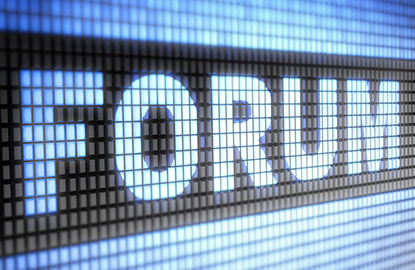
Studying history teaches us that the significance of events depends on what span of time and space one brings into play. As in geology, movements can sometimes be so painfully slow as to be practically indiscernible, like those of the tectonic plates that cover lengthy periods of time and enormous regions, or they can be dramatically fast, as with volcanic explosions, whose impacts are often local and immediate.
Likewise, in human history, we have sudden events like the declaration of independence in Malaysia on Aug 31, 59 years ago, changing the game overnight for those affected, or the fall of empires, which could be so protracted as to be indiscernible to those living through it but which affected generations and multiple regions.
Just as in physics, so it seems to be in the human sciences. Space and time cannot be separated.
One can tabulate this for clarity. In one corner, we have the mindset that is fixated with the here and now. In the opposite corner are those who cannot help but think as abstractly as possible, both in time and space. And then we have the two other ideal positions: one that thinks locally but over long spans of time, and the other that thinks expansively in space but over the short term.
We can see that each has its strengths and weaknesses. But the biggest weakness of all for society as a whole is really the inability to switch from one mindset to another in order to gain — and balance — different perspectives. As for an individual therefore, what society as a whole should consider is where its present fixation lies, why that is so, and then try to pry the mindset away from it in order to enrich it with the other perspectives.
Here, one can see why it is vital to heighten in society and in schools the status of three vital approaches to knowledge, namely philosophy, history and literature. What is common to these three is the captivation with language. It is through this fascination that the phenomenon of language can be problematized, its claims made appropriately relative, its limits recognised, and concepts clearly seen to be subjective, tentative and functional.
History allows us to see that there are conditions that mankind is caught in which can stretch over long spans of time and which are understood only if seen that way. Some of these are powerful and in effect are givens. Much of this is physical, like land and sea, mountains and rivers. But in the midst of all that, we have human agency that manages to alter dynamics through sheer will or through insightful readings of human, natural and historical forces. As a science therefore, history is a vibrant discipline that constantly allows for new approaches.
Philosophy, at least since the 20th century, deals greatly with language, and has made us conscious of language as a problem. Language is an amazing tool, but the fact that it defines mankind should also tell us that it is never a neutral instrument. And yet, most of the key words and notions we use daily are received ones, given us by society and by our past, and reflecting inherited agendas. Ideas, good and bad, survive — and go viral beyond the space and time in which they came into being.
Literature, I suspect, is really the most accessible to young people of the three approaches I mention. Studying the written works of others reveals the mechanisms and processes that went into the creation of a piece of literature, be it a novel or a journalistic piece. This helps us realise that nothing is really objective. Instead, all notions are suggestions that the reader has the option of accepting, rejecting or being inspired by.
That is what is common to these key subjects that I think contribute greatly to the rationalising and liberating of the individual mind. In a phrase, we are always dealing with poetry, with the capturing of individual experiences in words which are then shared with the world. Those receiving that message can then do what they will with it. It helps greatly that he lives in a culture that accepts that understandings of human space and time, though inseparable, must be varied and that it is harmful to allow one mindset to dictate the discourses of society.
For example, the modern-day politician is very often a reactive person who thinks in terms of the immediate impact on his constituency. This limits his thought processes, of course. We call a politician a statesman when he manages to transcend that mode of thought.
In general, it is other segments of society that need to counterbalance this specialisation, so that together, in the ideal case, an open discourse is maintained. Scholars, NGOS, journalists and common people all have a role to play. But for public discourse to be vibrant and healthy, public space for these trains of thought to be properly expressed and reviewed must be provided.
Social mobility, free flow of information and a separation of political power therefore become critical in keeping a society sane. The education system of a country therefore needs to encourage the study of philosophy, history and literature to encourage minds that cannot help endlessly studying received notions anew.
Ooi Kee Beng is the deputy director of ISEAS—Yusof Ishak Institute, Singapore. His recent books include The Eurasian Core: Dialogues with Wang Gungwu on the History of the World (ISEAS, 2015).
Save by subscribing to us for your print and/or digital copy.
P/S: The Edge is also available on Apple's AppStore and Androids' Google Play.